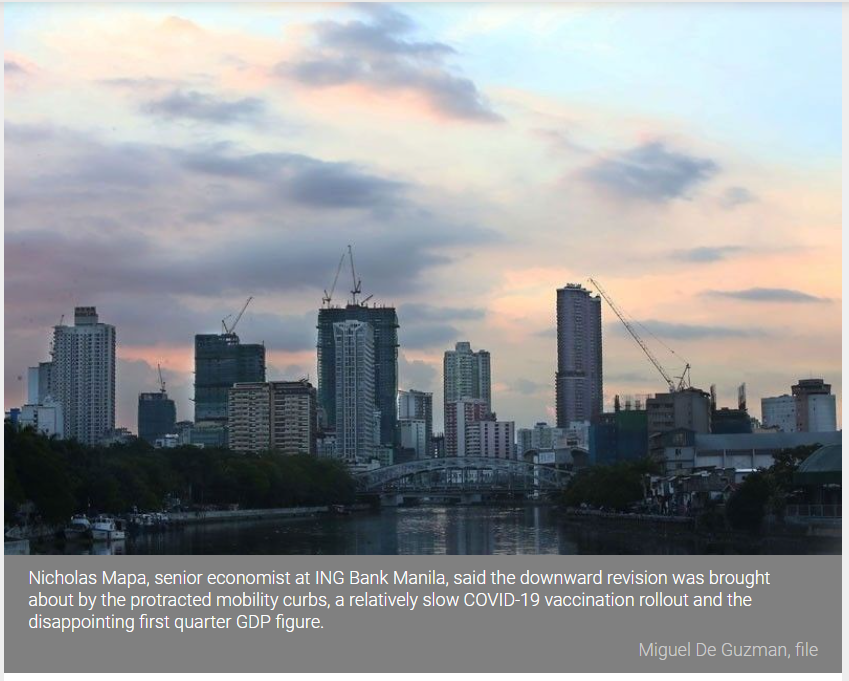ING cuts Philippines growth forecast
MANILA, Philippines — Dutch financial giant ING Bank sees the Philippines lagging in terms of recovery from the pandemic as it slashed the gross domestic product (GDP) growth forecast to 4.7 percent instead of five percent this year.
Nicholas Mapa, senior economist at ING Bank Manila, said the downward revision was brought about by the protracted mobility curbs, a relatively slow COVID-19 vaccination rollout and the disappointing first quarter GDP figure.
“We have lowered our 2021 growth forecast to 4.7 percent from five percent with possible downward revisions should the twin deficits widen further,” Mapa said.
Although authorities have moved to reopen the economy to jumpstart growth, he said the developments ushered in the return of the current account deficit and the depreciation of the peso that tends to accompany it.
“The weak currency, in turn, may magnify price pressures, making it extra vulnerable given the strength of the dollar. At the same time, the confluence of strained revenue streams and lackluster growth has resulted in successive months of wider fiscal deficits, resulting in the overall debt-to-GDP ratio crossing the 60 percent level,” Mapa said.
Government data showed the total debt-to-GDP ratio stood at 62.1 percent as of end-May as domestic and foreign borrowings amounted to P11.07 trillion.
Given the official GDP projection of six to seven percent this year, Mapa said the budget deficit would need to stay below P445 billion by December.
This, according to the ING economist, is a tall order considering that the budget deficit breached this level and amounted to P566 billion in May.
ING said the Philippines was running fiscal deficits even before 2020, with the pandemic simply pushing the deficit deeper into the red, to 7.5 percent of GDP in 2020 amid the huge fiscal stimulus packages at a time of soft revenue collections due to the impact of the COVID-19 pandemic.
The shortfall may swell further to 9.4 percent of GDP this year as revenue take remains meager as Republic Act 11534 or the Corporate Recovery and Tax Incentives for Enterprise Act (CREATE) slashed corporate income tax to 25 percent from 30 percent.
Mapa also noted that bank lending has since slipped into negative territory, indicating depressed demand for investment outlays, while unemployment bounces between seven and eight percent depending on the level of mobility restrictions in place.
Likewise, he said improving consumer confidence remains negative, suggesting a modest recovery in consumption in the near term.
After New York-based Fitch Ratings revised the country’s outlook to negative from stable, Mapa said another possible outlook revision or outright credit rating downgrade would be detrimental to the country’s recovery fortunes, with borrowing costs for the already cash-strapped economy moving higher.
Source: https://www.philstar.com/business/2021/07/15/2112542/ing-cuts-philippines-growth-forecast


 Thailand
Thailand




